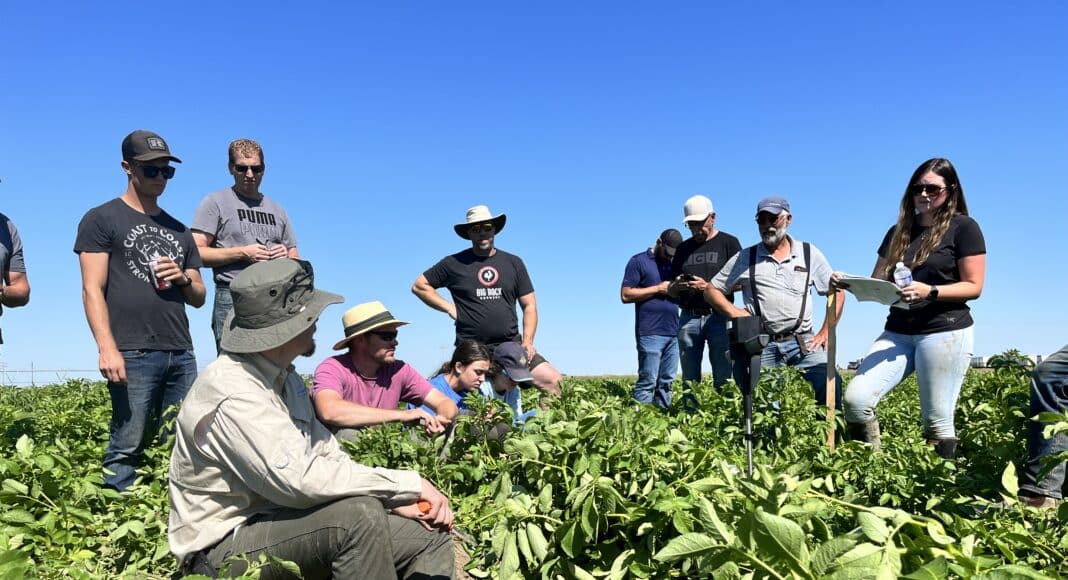Last year, McCain announced our commitment to support our growers in adopting regenerative agriculture on 100 per cent of our potato acres by 2030. We tended to hear three main questions from our growers about this: Why? How will we measure this? Will I be kicked out if I don’t do this?
The “why” is simple: climate change is an existential threat to supply security in the potato industry. We now expect crop failures in two of our seven North American growing regions every year, which has devastating financial consequences for our growers and food security consequences for consumers. Things are only going to get worse.
Regenerative agriculture helps reduce carbon emissions while building soil health and agronomic resilience to climate shocks. We also believe regenerative agriculture will build financial resilience. We’re only interested in promoting practices that make both agronomic and economic sense.
We took a critical step forward to answer the second question about measurement this year. In June, we released our regenerative agriculture framework. The framework defines a regenerative potato acre by setting clear beginner, master, and expert criteria for each of the seven principles of regenerative agriculture. We believe it creates a credible, clear industry standard for our consumer while allowing a flexible menu approach for growers to choose the principles that fit best with their operation and region.
The framework was developed with a cross-sectoral group of growers, academics, government officials, NGOs, and McCain staff. It was important to release the framework publicly so we could get feedback, be clear about our goals, and hold ourselves accountable to our commitments. Having this definition also allows us to speak credibly to consumers and shift the narrative to show how potato growers are part of the solution to climate change.
We recently completed our voluntary baseline survey to measure grower acreage against the framework. Sixty-five per cent of our growers completed this for the 2021 crop year. The results showed that almost 100 per cent of our acres are managed with at least one regenerative practice, which is great news. We know our growers are leaders in this space. We have some acreage at the beginner, master, and expert levels as well. Our goal is to support our growers to get 50 per cent of our potato acres to the beginner level by 2030. The strengths and opportunity areas on the framework vary greatly by region, which each have unique soil and climate attributes.
To the third question – will I be kicked out if I don’t adopt regenerative? – the answer is simply “no.” Working with us on regenerative agriculture is voluntary. We believe in these practices for all the reasons above and are working to build the region-specific evidence base on agronomic and economic benefits, but ultimately respect that what you do on your farm is your decision. Our local agronomy and field teams are simply asking for the opportunity to work together in partnership on trialing regenerative practices that excite you.
What comes next? We see McCain’s role as amplifying proven practices, funding commercial-scale trials to de-risk practices that are new to a region, and telling the potato grower story to consumer. To that end, we are focused on training and extension through our partnership with the Soil Health Institute, launching two Innovation Hubs to test priority practices at scale on grower farms for the 2023 crop year (in addition to our New Brunswick Farm of the Future), and providing funds to growers through our recently announced Future of Potato Farming Fund with McDonald’s.
We know regenerative agriculture is a polarizing topic, but we see it as an exciting opportunity to build resilience, reduce costs, and own the narrative about our amazing crop. As always, please reach out to your local McCain agronomy and field teams with questions, comments, and ideas for partnership on regenerative agriculture. Whatever you have been thinking about trying – we want to help. Our number one priority is to go on this journey in partnership with our growers, who are the heart and soul of our company and delicious products. Onwards to a safe harvest!











